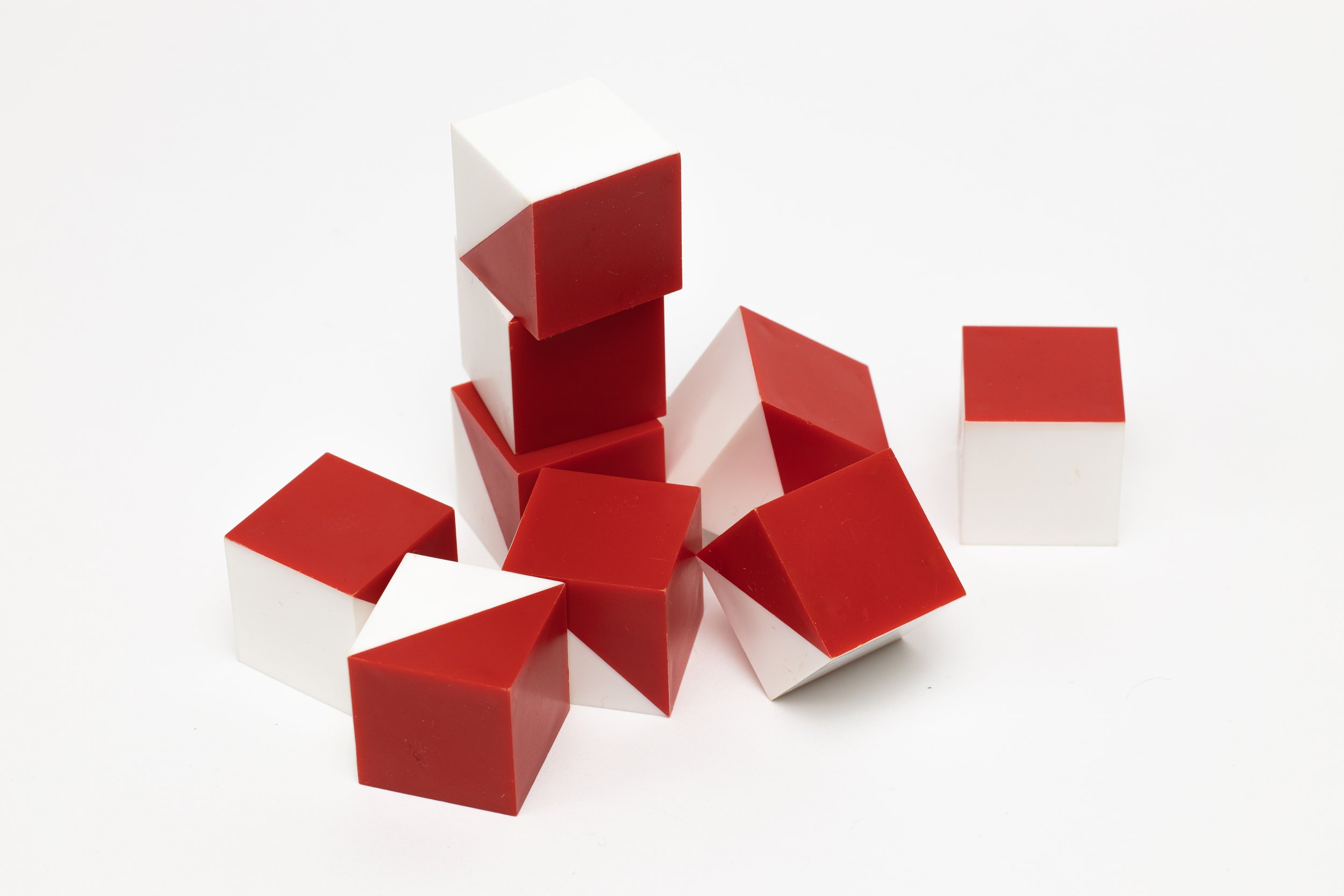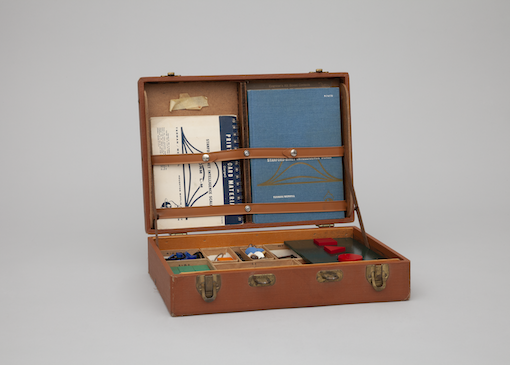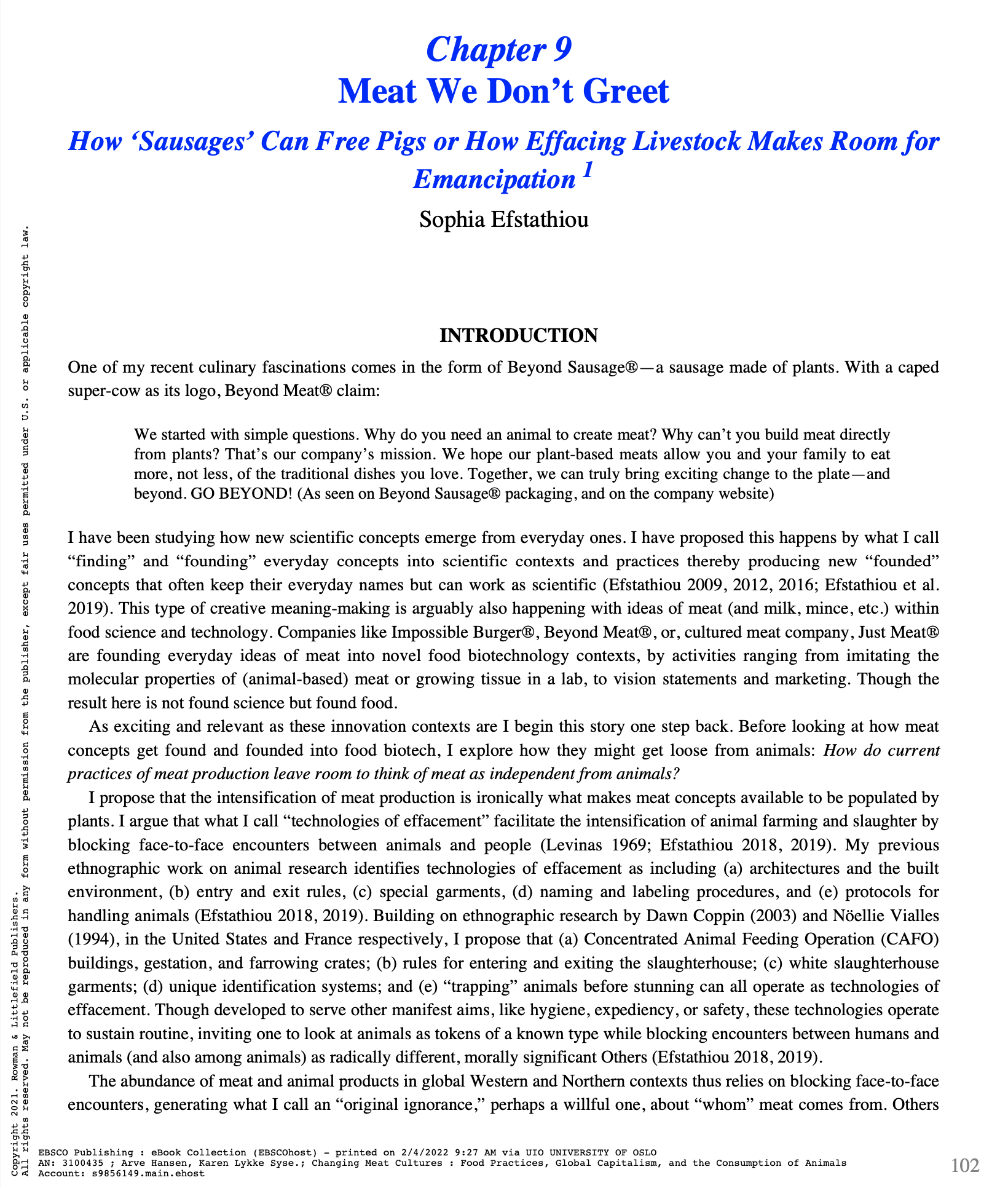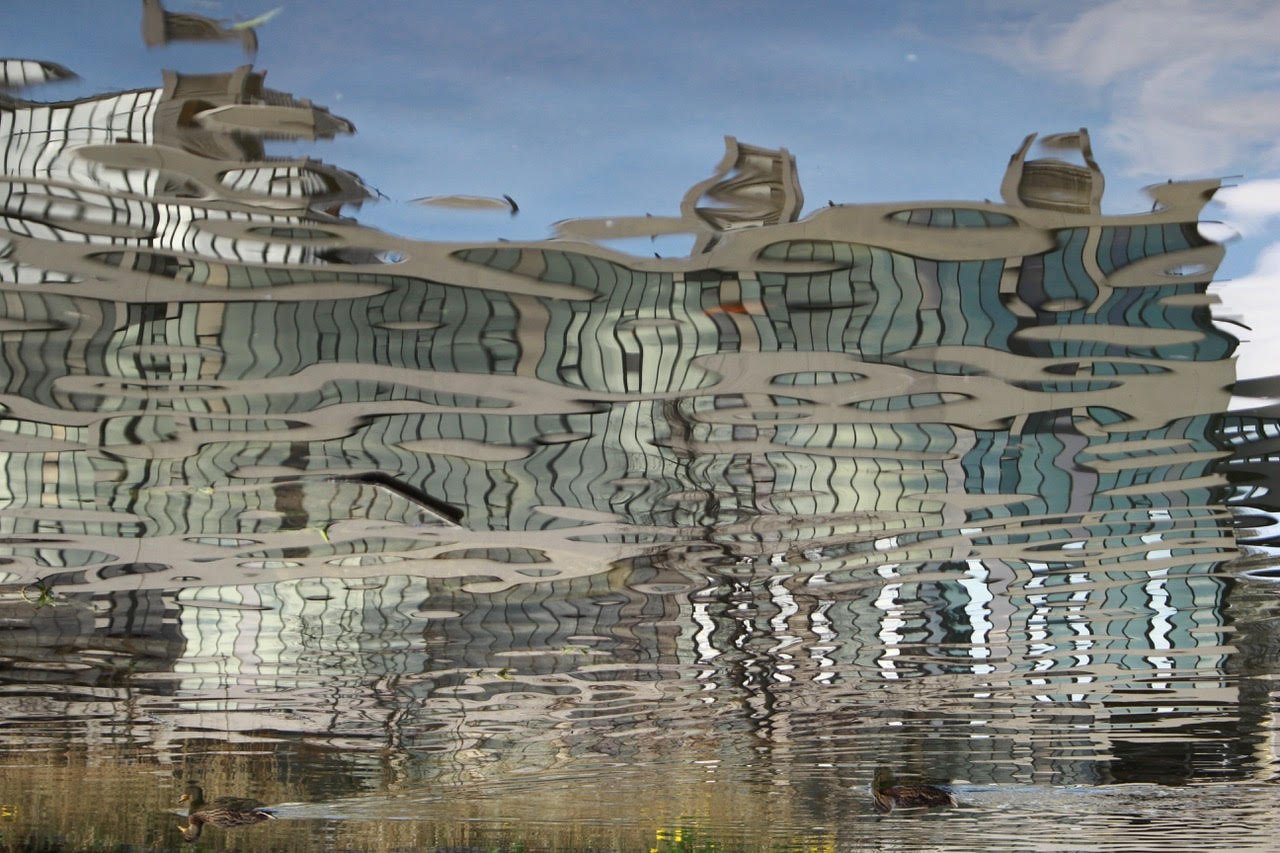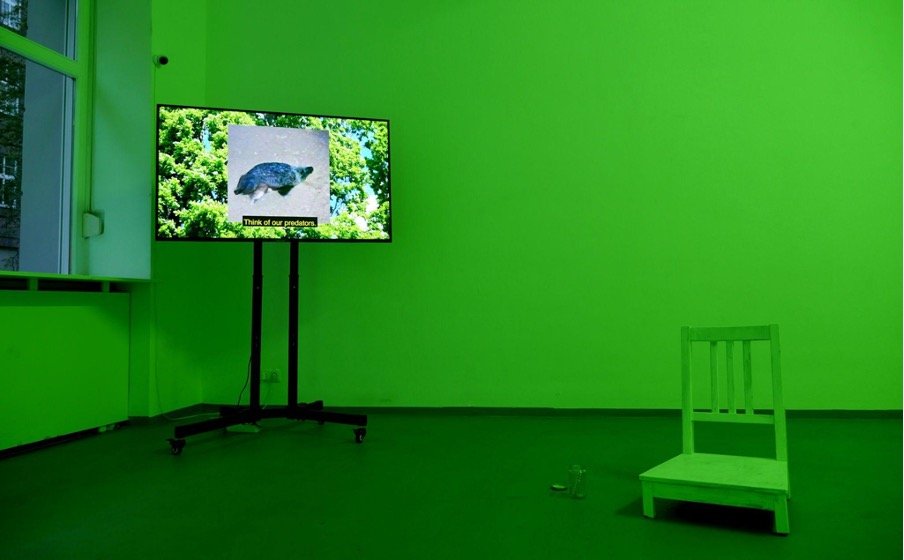Block design test, a subset from the WISC III (Wechsler Intelligence Scale for Children) developed in 1991 in the USA. The block test was used to assess spatial visualization ability and motor skill. Photo: Helge Brekke / MUV, UiO
With Sophia Efstathiou, Ageliki Lefkaditou and the Museum of Cultural History via its department, Museum of University History, University of Oslo.
Residency dates: 15 November - 10 December 2022
What is intelligence? Can intelligence be owned, given or lost? Does it arise from our genes or our environment, or some mixture of both? Who can be thought of as intelligent and who is excluded from this category? How have science, society and art historically been dealing with intelligence - and how could they?
Residency 23, Understanding intelligence, invites a multidisciplinary group of artists, scientists, and others to explore concepts and constructs of intelligence.
Intelligence seems to be a key value in human societies, especially in modern Western ones. It is often presented as a cornerstone of what it is to be human: a primary characteristic of our species. However, the study of other-than-human creatures has brought discussions about intelligent pigs, crows and octopuses to the dinner table, sometimes only to suggest that these animals are intelligent exactly like (or even more than) humans. When a capacity of mind is regularly denied of animals, especially of farm animals, one wonders if this is not least to soothe consciences around humans’ habitual behaviour towards other beings.
Once it comes to structuring human societies, specific concepts of intelligence and intelligence testing procedures penetrate several institutions: education systems, professional bodies’ examinations and assessment, healthcare systems’ definitions of intellectual disability, legal measures relating to mental health, intellectual capacity and individual responsibility. Further, notions of intelligence shape and are shaped by popular culture, for instance through portrayals of geeks, geniuses or the neuro-atypical. This is not without controversy. Intelligence measures and testing (for example via IQ scores) have operated historically to exclude, discriminate against and harm humans themselves, most specifically people already marginalised by their presumed gender, race, ethnicity or sexuality. Concepts of intelligence and procedures for measuring intelligence have thus legitimately been under scrutiny for more than a century.
This residency asks how constructs of intelligence are measured, used and abused, and how changing understandings of human and more-than-human worlds might require radical redefinitions. Through creative engagement with concepts of human and other-than-human intelligence, intelligence testing and the resources of existing research projects, the residency aims to stimulate new understandings of intelligence through dialogue and creative activity. The residents will explore questions of control, freedom and access, and how lines are drawn between the pathological and the normal, nature and culture, and human and animal.
Residency 23, Understanding intelligence is developed in collaboration with the University of Oslo (UiO) research project Historicizing intelligence: Tests, metrics and the shaping of contemporary society, which is based at the Museum of Cultural History, at its department Museum of University History (MUV). Historicizing intelligence examines how the scientific research object “intelligence” and related testing technologies have come into being through transnational exchanges, how they have acquired various roles and functions in Norway, and how intelligence measurements are woven into relations of authority and legitimacy. Residents will have the opportunity to engage both with a multidisciplinary research team of historians, social anthropologists, science and technology scholars, jurists, and educationalists, and with materials in the historical collection on intelligence testing at the University of Oslo.
Residents will also have the opportunity to engage with work on human-animal relationships that is part of the research project MEATigation: Towards sustainable meat-use in Norwegian food practices for climate mitigation, based at the Norwegian University of Science and Technology in Trondheim, and partly at the University of Oslo.
About Sophia Efstathiou
Sophia Efstathiou (b. 1978, Athens) is a philosopher of science working on the interfaces of science, art and everyday life. She is a senior researcher at the Norwegian University of Science and Technology (NTNU) currently leading the Research Council of Norway project MEATigation: Towards sustainable meat-use in Norwegian food practices for climate mitigation (2020-2024). Her research has received EU, NSF, Max Planck and White funding and has been presented at the Athens Biennale (2012, 2018), Ars Electronica (2020) and Cornell Biennial (2020).
About Ageliki Lefkaditou
Ageliki Lefkaditou is a historian of science, an award-winning science museum curator and documentary producer focusing on the art of natural world storytelling. She is a senior researcher at the University of Oslo, where she currently works on a Research Council of Norway funded project focusing on the history of intelligence testing. As a producer she is involved in two documentaries dealing with climate/nature crisis and human-animal relations, both supported by the Norwegian Film Institute. She has curated several science museum exhibitions, among which FOLK – From Racial types to DNA Sequences, winner of the 2018 British Society for the History of Science Great Exhibitions Prize.
About the Museum of University History (MUV)
MUV has been assigned the task of disseminating, documenting, preserving and researching the history of science in Norway as well as the heritage of UiO. MUV is a department of the Museum of Cultural History, UiO.
The Residents
Events
Timeline
Open Call: 19 May - 20 June
Interviews: 6 - 8 July
Final selection by 22 July
Residency: 15 November - 10 December

